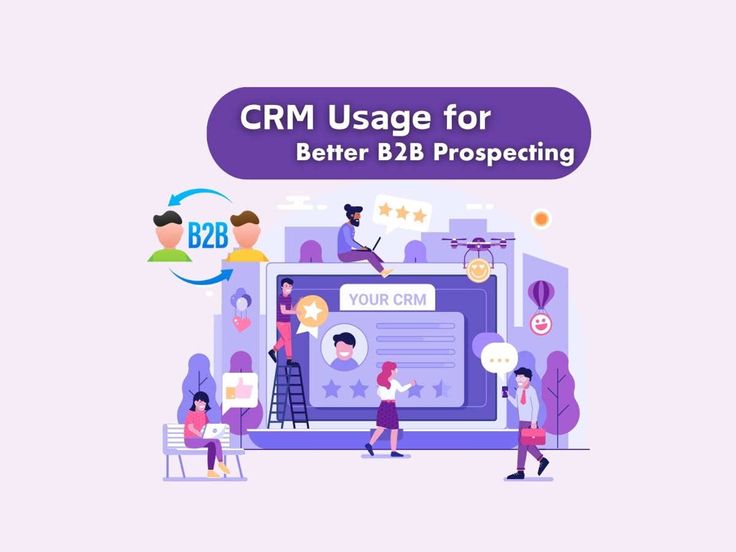
Unlocking the Potential of CRM for B2B Businesses
In the competitive landscape of B2B (business-to-business) enterprises, managing customer relationships is pivotal to achieving sustained success. Customer Relationship Management (CRM) systems have emerged as essential tools for B2B businesses, enabling them to streamline operations, enhance customer interactions, and drive growth. This article delves into the significance of CRM for B2B companies, explores its key features, and highlights strategies to unlock its full potential.
The Importance of CRM in B2B
B2B relationships are inherently complex, often involving long sales cycles, multiple stakeholders, and intricate negotiation processes. CRM systems are designed to address these complexities by providing a centralized platform to manage interactions, track customer data, and analyze business performance. Here’s why CRM is crucial for B2B businesses:
- Centralized Data Management: CRM systems consolidate customer information from various sources, creating a single source of truth. This ensures that all team members have access to up-to-date data, facilitating better collaboration and decision-making.
- Enhanced Customer Insights: With detailed customer profiles, B2B companies can gain deep insights into their clients’ needs, preferences, and behaviors. This enables more personalized and effective communication, fostering stronger relationships.
- Improved Sales Efficiency: CRM tools automate and streamline sales processes, from lead generation to closing deals. Sales teams can track opportunities, manage pipelines, and prioritize tasks, leading to higher productivity and increased conversion rates.
- Better Customer Service: CRM systems provide a comprehensive view of customer interactions, helping support teams resolve issues promptly and effectively. This improves customer satisfaction and loyalty, which are critical for long-term success in B2B markets.
- Data-Driven Decision Making: CRM platforms offer robust analytics and reporting capabilities, enabling businesses to make informed decisions based on real-time data. This helps identify trends, measure performance, and optimize strategies.
Key Features of CRM for B2B
To unlock the full potential of CRM, B2B businesses should leverage the following key features:
- Lead and Opportunity Management: CRM systems help manage the entire sales funnel, from lead acquisition to opportunity tracking and deal closure. This ensures that no potential business slips through the cracks.
- Account and Contact Management: By organizing customer information into accounts and contacts, CRM systems provide a clear view of all stakeholders involved in a business relationship. This is particularly useful for managing complex B2B interactions.
- Workflow Automation: Automation features streamline repetitive tasks, such as follow-up emails, data entry, and task assignments. This frees up valuable time for sales and support teams to focus on high-value activities.
- Customizable Dashboards and Reports: CRM platforms offer customizable dashboards and reports, allowing businesses to monitor key metrics and gain actionable insights. This helps track performance and identify areas for improvement.
- Integration with Other Systems: CRM systems can integrate with other business tools, such as marketing automation, ERP (Enterprise Resource Planning), and customer support software. This ensures seamless data flow and enhances overall efficiency.
Strategies to Unlock the Full Potential of CRM
To maximize the benefits of CRM, B2B businesses should adopt the following strategies:
- Align CRM with Business Objectives: Ensure that your CRM strategy aligns with your overall business goals. Define clear objectives, such as increasing sales, improving customer retention, or enhancing customer service, and tailor your CRM implementation accordingly.
- Invest in Training and Adoption: A CRM system is only as effective as its users. Invest in comprehensive training programs to ensure that all team members understand how to use the system effectively. Encourage adoption by highlighting the benefits and providing ongoing support.
- Segment and Personalize: Use CRM data to segment your customer base and tailor your communication strategies accordingly. Personalized interactions demonstrate that you understand your clients’ unique needs and can provide solutions that add value.
- Leverage Analytics: Take advantage of CRM analytics to gain insights into customer behavior, sales performance, and market trends. Use this data to refine your strategies, identify new opportunities, and address potential challenges.
- Regularly Review and Update: The business environment is constantly evolving, and your CRM strategy should evolve with it. Regularly review your CRM processes, update customer information, and adjust your approach based on feedback and new data.
Conclusion
In the B2B sector, where relationships and data-driven decision-making are paramount, CRM systems offer a competitive edge. By centralizing customer information, enhancing insights, and streamlining processes, CRM enables B2B businesses to build stronger relationships, improve sales efficiency, and achieve sustainable growth. To unlock the full potential of CRM, companies must align their CRM strategies with business objectives, invest in training, personalize interactions, leverage analytics, and continuously adapt to changing market dynamics. With these strategies in place, B2B businesses can harness the power of CRM to drive success in an increasingly competitive landscape.